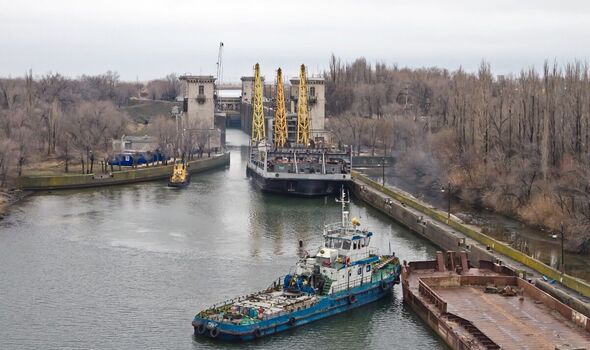Plans are afoot to build a 430-mile canal that will connect the Caspian and Black Sea.
If the project is completed the canal would link several landlocked countries in Asia with the open seas through the Bosphorus.
Known as the Eurasia Canal, it is intended to provide a shorter route for shipping than the existing Volga–Don Canal system of waterways.
The project could cost anywhere between seven and seventeen billion pounds, depending on which design is approved.
Currently two versions of the plan for expanding the Volga–Don Canal and rechristening it as the Eurasian Canal are now being considered.
Both would require big investments and take several years to build.
The first option would cost an estimated £7 billion and allow for the transit of ships as large as 10,000 tonnes.
The second would cost approximately £17 billion but then could carry ships as large as 26,000 tonnes.
The first variant could purportedly pay for itself in 11 years and the second in 25.
The completion of the construction of the Eurasia Canal will significantly increase non-oil and gas exports from Russia.
It will also create more than 200,000 jobs in the south of Russia, Kazakhstan and other countries of the Caspian region.
A significant part of the cargo traffic between China and the countries of the European Union, which have ports on the Mediterranean Sea, will be transported via this new trans-Eurasian route.
If built, the nearly 430-mile Eurasia Canal would be four times longer than the Suez Canal and eight times longer than the Panama Canal.
The route normally proposed is along the lowest ground line of the Kuma-Manuch Depression in southwest Russia, considered a natural boundary between Asia and Europe.
The Kuma-Manych depression area is quite arid, with annual precipitation of no more than 400mm (in the western section) and 200mm (in the eastern section).
To operate this shipping canal with locks, a significant additional supply of freshwater would be necessary.
